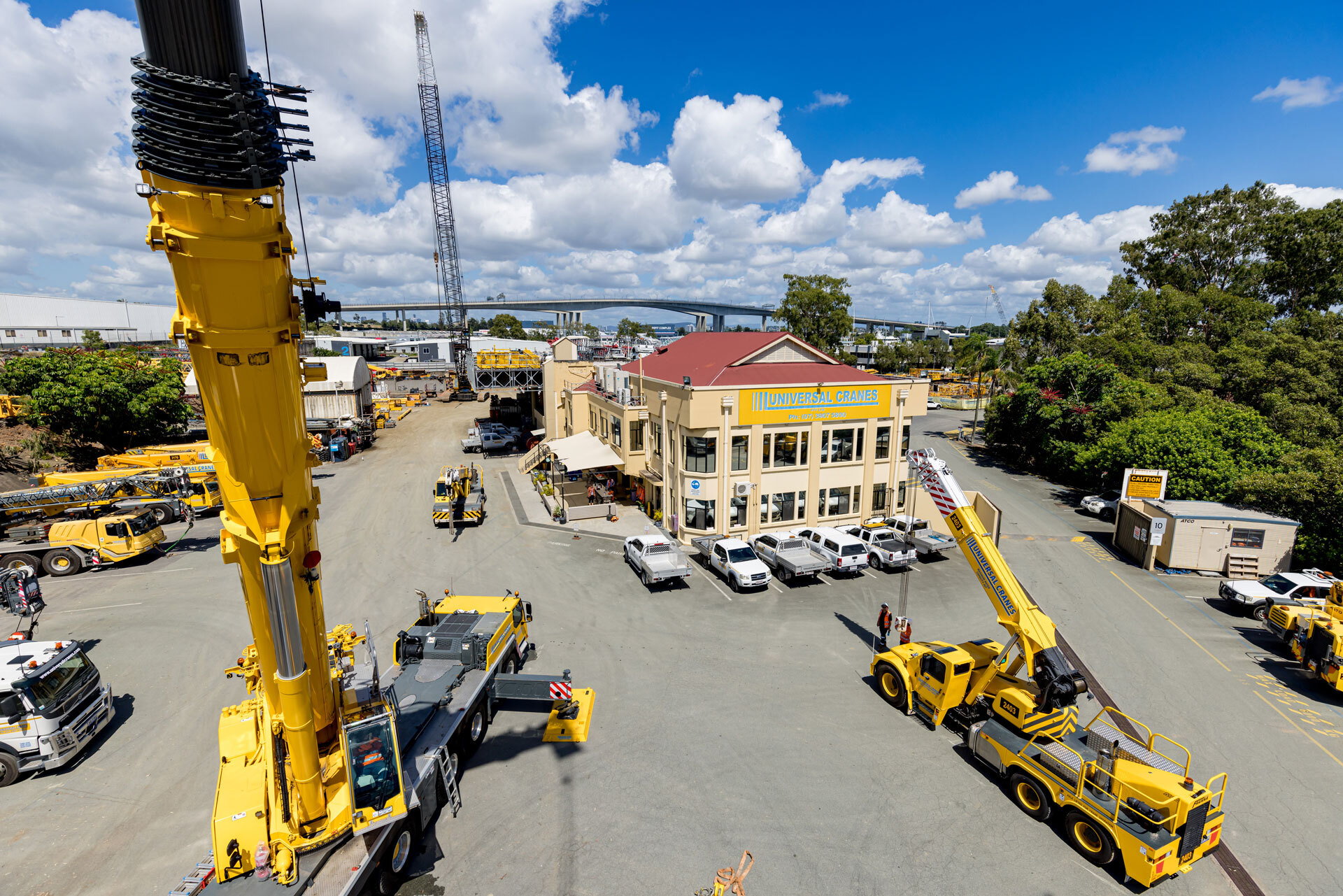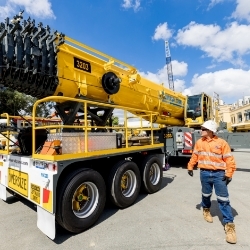Safety Update – Housekeeping in the Crane Industry
01 September 2017
All too often overlooked in the busyness of the crane industry, housekeeping is an aspect of safety management not to be taken lightly.
Good housekeeping not just shows respect for your workplace and your colleagues, it also eliminates simple yet significant hazards in work environments. Poor housekeeping can cause trips and falls resulting in musculoskeletal injuries, sharp materials resulting in lacerations, and hide other hazards that may become more apparent when surrounding mess is eliminated. In fact, housekeeping practices are so important that Workplace Health and Safety Queensland has in the past conducted state-wide compliance campaigns focussing on housekeeping in the construction industry. In the crane industry, housekeeping is important both at HQ, in the workshop, as well as in and around the crane.
So what exactly is housekeeping in the context of our workplaces? Yes, it does involve cleaning, but housekeeping is more just that cleanliness. It involves keeping the work area ordered, systematic, and efficient.
This sounds like a simple task, but surprisingly seems to be a hard one to master. For the most part, organisations approach housekeeping on an ad-hoc basis. But reactive housekeeping is costly and superficial, and really does nothing to ensure the long term safety of the work space. It takes focused effort to plan a well-kept work space. Housekeeping should be properly planned, included in Workplace Health and Safety Plans as well as in Work Method Statements.
The first step to good housekeeping is a high level assessment of the work space. Things to consider include the layout of the entire work area, signage, aisle marking, maintenance, storage, and training. Is the work area set up to succeed in regards to housekeeping? The environment should facilitate tidiness by being simple, logical, and efficient. Once the workspace is set up in an appropriate layout, a housekeeping program can be developed. A housekeeping program should include cleaning up during shifts, day-to-day cleaning, disposal of waste, removal of unused tools and materials, and inspections. Training and culture are also important aspects of housekeeping. The team needs to have a clear understanding of expectations in housekeeping, and be adequately trained on how to carry out housekeeping tasks. A team culture that rejects ideas such as ‘that’s not my job’ or ‘I didn’t put that there’ or ‘the apprentice can clean that up later’ is crucial to success in housekeeping. When everyone plays their part in keeping the workspace tidy and hazard free, it becomes a much easier thing to master!
In respect to cranes, this means implementing certain standards of housekeeping in and around the cranes. Ensure rubbish is removed from the crane cab and it is kept clean with unobstructed access to the controls. As crane hire contractors, we are often working on a principal contractor’s site. This means making ourselves aware of and respecting the site’s housekeeping processes, such as waste disposal points, delivery and storage areas, and adhering to designated walkways and parking areas.
Let’s take a look at some instances where poor housekeeping has led to an accident, or where good housekeeping has prevented an accident.
Crane Fire
It is not completely uncommon for all terrain crane fires to occur, and when they do such incidents can have devastating outcomes. Fires in cranes can start quite suddenly and spread very quickly due to the presence of oil or fuel. Such an incident occurred in New Zealand in July 2009, and an incident investigation concluded the following measures should be taken to prevent catastrophic burn outs:
- Ensure machines are clear of debris in engine bays and all cooling systems are clear and functioning.
- Check for abrasions on wiring and hoses.
- Check for injector line and fuel leaks.
- Keep machines clear from ignition sources (e.g. gas cutting or welding near or on the machine).
- If you ever weld, cut or grind on a machine always stay near the machine for at least half an hour afterwards.
- Always turn off battery master switches at night or when the machine is left for a period of time.
- Check for exhaust leaks or items touching exhausts.
- Always park machines a minimum of 2 metres from each other so if a fire starts it does not spread too quickly.
- Ensure all machines are equipped with appropriately sized extinguishers and that the positions on the crane are known.
- If fire suppression systems are installed, ensure they are charged. The checking of fire suppression systems needs to have been added to the daily prestart inspections otherwise it might be overlooked.

